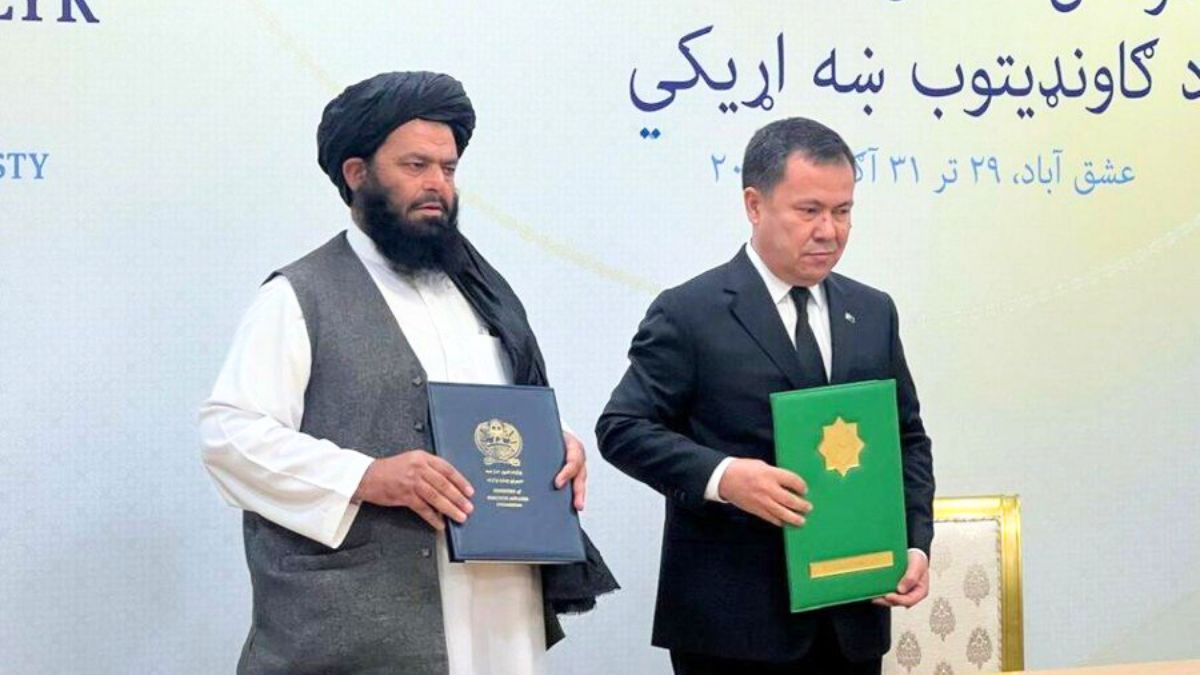Afghanistan and Turkmenistan have solidified their bilateral relationship through the signing of four key agreements. This development came during a recent visit by an Afghan delegation to Ashgabat, Turkmenistan’s capital.
The agreements, announced on August 30, 2024, cover a range of sectors including energy, transportation, trade, and infrastructure. These accords are expected to bolster economic cooperation and regional stability, benefiting both nations in the long term.
One of the pivotal agreements involves the expansion of the Turkmenistan-Afghanistan-Pakistan-India (TAPI) gas pipeline project, which aims to enhance energy security and support economic development in the region. This pipeline is crucial for transporting Turkmen natural gas to South Asia, providing Afghanistan with significant economic opportunities and boosting its role as a key transit hub.
The trade agreement aims to increase the volume of goods exchanged between the two nations, providing Afghan businesses with greater access to Turkmen markets and vice versa.
Additionally, the two countries have agreed to improve cross-border transportation links. This includes the development of new road networks and upgrading existing infrastructure, which will facilitate smoother trade and travel between Afghanistan and Turkmenistan.
This is expected to stimulate economic growth and create jobs in both countries.
The infrastructure agreement focuses on collaborative projects aimed at modernizing key facilities and services, further integrating Afghanistan and Turkmenistan’s economies.
As Afghanistan navigates its path towards economic recovery and growth, the strengthened partnership with Turkmenistan is poised to play a crucial role in advancing its strategic interests and fostering prosperity in the region.

